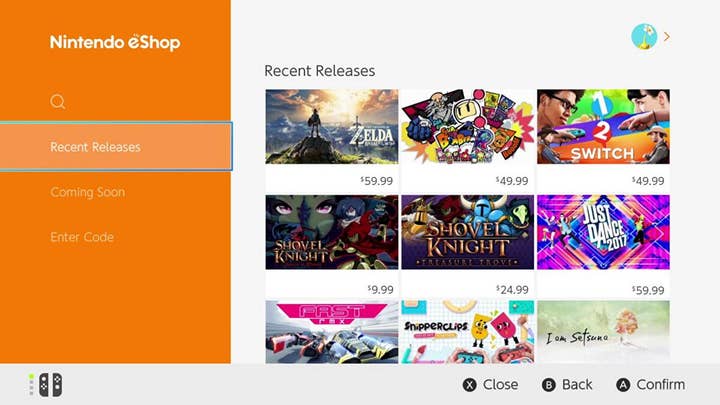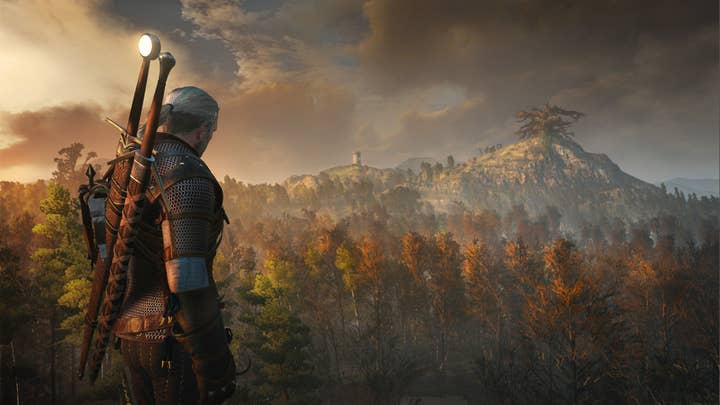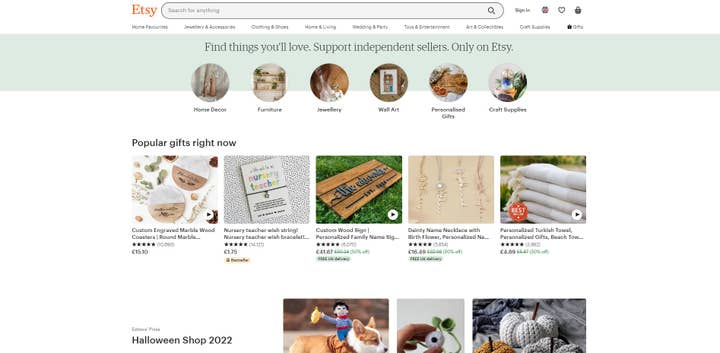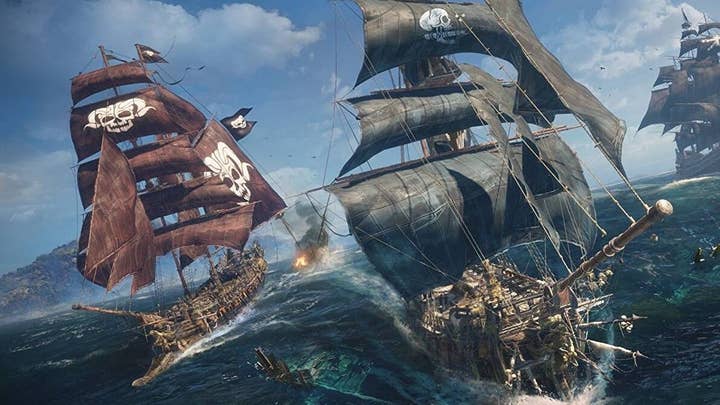What UKIE is doing to protect game IP
Intellectual property coordinator Mo Ali details how the trade body is combating not only piracy but the other ways people are exploiting content
Piracy is – and has always been – a game of cat and mouse.
Companies come up with new and, theoretically, more secure ways of protecting their intellectual property, such as digital rights management (DRM), games that always have to be online to verify they are legitimate or anti-tamper software like Denuvo. These might work for a bit, but then bad actors find ways around these measures, game firms have to come up with new forms of security, and the cycle begins anew.
UK video games trade body UKIE is one of the forces trying to fight piracy, both for its members (for free) and non-members (for a fee). The organisation is taking on both ‘regular’ piracy, but also non-traditional forms of piracy.
Since 2017, UKIE has been offering the former, tracking 500 games and it’s seen a fair degree of success during this time, having taken down two million individual links and 50 offending websites. So how exactly does this work?
From there, UKIE sends a letter or email that lays out who they are, that they are acting on the behalf of one of their members, pointing out that it has identified infringing content on a particular website. The best case scenario is one where a website ends up being closed down, but even if the trade body can’t achieve that, there are other options.
“The great thing about working for a trade association is you have a lot of clout,” Ali explains. “We’re contacting these websites on a regular basis. It's usually once in a blue moon, and that website will probably think, 'Who are these guys?' We've been sending hundreds, if not thousands, of these takedown notices to these sites.
“They know we're not going to go away and they know we're persistent. We will do our best to shut down the website but if we can't, what we try to do is disrupt. Removing links is the best way to do it. An example I give is if I go into a clothes shop, but they haven’t got any of the items I want, I’m not going to go back there again. In a way that's what we're trying to do; we're trying to make sure that if someone does go to the website to download a game, they won’t be able to find it. There won’t be a point in them going to the website if nothing is available, right?”
The process of taking down these links is somewhat similar. Generally, they are pointing toward what is known in the industry as ‘cyberlockers’. These sites are effectively storage units where users can upload and download files, except the links aren’t found on Google or anything like that. They have restricted access, often being password-protected, and afford a degree of anonymity for those using them.
Though now defunct, the most famous of these cyberlockers was Megaupload, run by one Kim Dotcom. Back in 2012, the FBI seized his website and charged Dotcom with a number of crimes including copyright infringement, money laundering and racketeering. That was before police in New Zealand – at the request of the United States – raided his home in quite spectacular fashion. Since then, he has been fighting extradition to the US.
Piracy affects indie and mid-tier teams more. Especially for indies, it could be they only have one game – their very first – and could have a big impact on their sales
All of which is to say that, according to Ali, the people running cyberlockers these days are slightly more wary of entanglements with the law than they might have been previously.
The ‘safe harbour’ provisions in laws like the Digital Millenium Copyright Act – which only applies to the US, but has become synonymous with these kinds of content takedowns – also mean that these cyberlocker operators can avoid liability by complying with requests to have the content removed. But it’s not always that easy.
“We're fortunate in a way that these cyberlocker operators will remove the links. Now sometimes they don't – some cyberlocker operators do not remove any links and that's why we will try to shut down the initial website as well,” Ali says. “So it's a two-pronged attack. Obviously, ideally we would like to shut down the whole website because if you go to it, you find nothing at all.”
Now, this sounds like an awful lot of work, but there’s a reason why UKIE has stuck with this strategy: it works. In fact, the trade association has a slightly higher rate of success than other industries.
“Our takedown rate is around about 80%,” Ali says. “That's very high. Just to give you an idea for the other types of digital content, music, audio, visual, books and so on, the average takedown rate for that content is around about 65% to 70%. So we have a higher takedown rate. That's really good.
“We also estimate that about 70% of the links we find are removed within 24 hours. Video game files are really big, so normally tens of gigabytes. If you think about it, it takes a while to download one single file or volume or ZIP/RAR files, so if we can remove all of those links within 24 hours, potentially we've stopped someone from downloading the full game file.”
The roots of piracy
There are a variety of reasons why people crack games. For some of the release groups – bands of hackers who try to break the security on new titles as soon as possible after launch – it’s about the technical challenge. For others, there’s the profit motive where they can sell the cracked title to websites where people download them from.
For those sites, the incentive is financial. As is the case with large parts of the internet, they make their money through advertising, which opens them up to another attack vector.
“That's something that we work on with the City of London Police,” Ali says. “They have what’s called Police Intellectual Property Crime Unit (PIPCU). Essentially, UKIE and the other trade associations here in the UK report websites that have advertising on them. What PIPCU then does is approach the brands and the advertising agencies and asks whether they’re aware that their ads appearing on infringing websites. It could be damaging to their brand as there’s obviously content that they won't want to be associated with. That's an effective way of removing ‘quality’ ads.
Pirates find innovative ways to monetise game titles, whether through merchandise, or selling cheats, bots and so on
“There was a point where we were finding a lot of gambling ads on these websites. Here in the UK, the Gambling Commission essentially made it a requirement that UK-based gambling companies should not advertise on these kinds of sites. That's something that again, as trade associations, we've been able to do along with PIPCU to make sure that at least gambling ads are not appearing.
“Now, unfortunately, what you now have are low-quality ads; I'm sure you've seen them. This person in your area wants to be your ‘friend’, video games that are a bit more raunchy and probably will never be UKIE members.”
One of the arguments against anti-piracy measures is that anyone who pirates your game was never ever actually going to pay for it. Back in 2017, the European Commission published research that concluded exactly this, saying there was “no evidence that piracy affects video games sales.” And while Ali admits that every instance of piracy was not a lost sale, he believes there is a rate of attrition.
“Back when I worked in the music industry, the statistic we always told people is that there was one lost sale for every 20 illegal downloads,” he explains. “So a person who's downloading games may themselves never ever purchase those games. Completely understand. But they're sharing with people who might do. They might be providing access to the game or profiting from it. Whatever they do has an impact on so many other different areas.”
According to Ali, the majority of piracy he sees these days is for PC titles – perhaps not the biggest shock given the open nature of the ecosystem. But the second place apparently goes to the Switch, which is surprising given to how strict Nintendo is with its platform.
“We are finding sites with Switch titles, but it's far more small scale than the PC issue,” Ali says. “Obviously, with the majority of PC titles, if you play a cracked version, you have full access. With the Switch titles, you're limited on what you can do, and I think that does deter people, obviously. It's not as easy as it was.”

Though many of the headlines surrounding piracy in the games space concern AAA titles, the companies behind them often don’t feel the heat to the same degree as smaller developers and publishers.
“I would say piracy affects indie and mid-tier teams more,” Ali says. “Especially for indies, it could be they only have one game – their very first – and could have a big impact on their sales. Obviously, with the AAA guys, piracy could ruin all their marketing plans. What if someone jumps an embargo and does a full play-through of their game on YouTube or Twitch? It may not just be the fact that people can play the game. It could be the way they're trying to market that game and give access to people and stuff.
"Financially, yes, it probably affects the guys who are at the bottom of the pyramid but, we just want to make sure that all of our members and all games industries are protected as best as possible.”
Preventing piracy
As with anything, there are a variety of ways to handle piracy. What we have been discussing with Ali so far is what could broadly be described as the ‘stick’ approach, using force or threats to have someone do what you want. But there’s also the ‘carrot’ approach.
This has been used by companies like CD Projekt, which doesn’t use DRM on its games. Many people would say that this is a foolish way of doing things, but the Polish giant believes that having a good product will mean that more people are inclined to part with their hard-earned cash.
For Ali, the sheer variety of companies in the games industry means that there will be a diverse array of measures to try to tackle piracy.
We won't be law enforcement and knock the doors down… we will try to work with [fans] and make them aware that they are breaching IP rights and so on
“Each games company works in its own way,” he says. “The great thing about games is that it's not a single product and therefore people will choose to play a game for many different reasons. If it's a CD Projekt title and it's because consumers feel like they're getting more, then that's great, because then hopefully that may encourage other then companies to try something similar.
"Free-to-play is something that has been innovative and in a way other industries then followed suit. With music streaming services, there’s a free version with ad support. The games industry probably did that kind of freemium model first to give users a different experience."
While trying to take down ‘traditional’ pirates is a large part of what the intellectual property team at UKIE does, it’s far from everything. The trade body also tries to tackle other ways people attempt to infringe on IP.
“There are many different types of games and many different platforms where games are, for example, purely online and there is no essential physical game file to download,” Ali says.
“We find that pirates will find innovative ways to try, monetise that game title, whether through merchandise, or through selling cheats, bots and so on. What we try to do is adapt our services to the current threats that, you know, we're finding because technology is changing.”

He continues: “We work on looking at private servers where game code has been taken from an older version of a game and obviously, dedicated fans of that community have essentially created their own version. That's code that's owned by one of our members. So we contact the operators of those private servers and we make them aware, that we're acting on behalf of one of our members and that they're using their IP.”
“There are also people offering their services or in-game items. There are specific game titles where someone will offer to alter your plants and do certain things on your island or whatever. Again, these are more violations of the policies within that gaming environment, so yes, it is an IP infringement because these listings will use imagery etc to promote the service or the item that they're making available. But again, they’ll have signed up to play a game and there are the terms and conditions that nobody reads – it's very clear in there that you are not able to monetise offer any services without the permission of the IP owner. So that's something else that we work on.”
If you can have an app removed within less than a month, potentially, you're stopping those guys from collecting any of their revenue
This also includes unofficial merchandise. UKIE will often contact marketplaces like Ebay, Amazon and Redbubble which have listings for T-shirts, stickers and so on based on other people’s IP.
“There are obviously no checks in place by those platforms,” Ali explains. “How do they know a game character from a specific title? We will go on to those websites and identify the merchandise that's been made available. Etsy is another good one as well, where people won't just sell merchandise, but they'll sell items – it could be a sword, a potion, or whatever.”
Of course, unlike people spending long periods of time trying to crack the protection on brand new video games, those selling stickers of their favourite game on one of these marketplaces aren’t necessarily aware of the fact that what they are doing isn’t allowed.
“We don't want to be law enforcement and knock the doors down,” Ali says. “We work with our members to make sure that we have certain rules in place. For example, if a company has an official t-shirt design and someone is trying to make their own counterfeit version, then we will take that down because that's obviously direct competition to what our members are trying to sell. That's a blatant infringement.
“But where again a fan is maybe a little bit unaware or maybe not sure what they should be doing, we will try to work with the seller and make them aware that they are breaching IP rights and so on. Obviously, if they then don't take the necessary action, then we will request for those listings to be taken down from those platforms. We're not claiming that all of the pirates and sellers are people who are in it for the money; some of them just do it because we're in this world where everything is online and everyone.

Attack of the clones
And speaking of intellectual property, one ever-present game industry problem is the idea of cloning. It’s an issue that came to the forefront earlier this year when indie smash hit Wordle was relentlessly copied after it surged in popularity.
A person who's downloading games may themselves never ever purchase those games. But they're sharing with people who might do
Ali says the first step to protecting your game from cloning is to trademark the name, adding: “That's a big deterrent. If I was going to look for a clone of a game, the first thing I will do is search for the name of that game title. If it was called Mo's Game and I trademarked that, if other people are trying to release something similar, then it's easier first of all for UKIE’s IP team to find it and take it down because it's a trademark infringement. It also stops people from making a blatant rip-off.
“We then ask companies to check games with a similar name. Someone could make Moe’s Game, which has very similar content; they've been lazy and have copied locations, artwork, the characters and so on. That's great because then you can show that's a copyright infringement as essentially they've made a copy of the content within the game. It doesn't necessarily have to be a complete clone of the game, but if there are elements of the game that have been copied then again that makes it easier for us to contact the app store operators and have the games removed."
Ali adds that developers should make as many screenshots available as possible, because this will help to demonstrate if a suspected clone is a "definite ripoff," which in turn makes it easier for app stores to take down.
"If these guys are monetizing these apps, time is of the essence," he adds. "It's not public knowledge, but the app stores payout after a certain number of days, so if you can have an app removed within less than a month, potentially, you're stopping those guys from collecting any of their revenue.
“It's important to monitor the app store. If you are releasing a game, it is worthwhile either checking yourselves or getting in contact with UKIE and making sure that we're checking those app stores for you and the quicker we remove those apps, we potentially stop people monetising your IP. These guys move on. They'll make as much as they can from one game and then set up another. Obviously, if we can take it down as quickly as possible, that's beneficial to the developer.”

